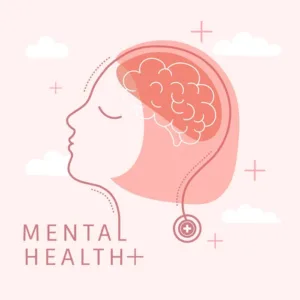In this article, we will discuss ten Red Flags In A Relationship which could be a sign of trouble. Establishing a good and satisfying relationship is not an easy task; it requires a lot of thinking and sensitivity to both the positive and negative aspects. And although it is crucial to appreciate the strengths of a person, it is also vital to note some possible red flags that may indicate underlying problems
Red Flags In A Relationship:
Controlling Behavior:
One crucial warning sign is controlling behavior. This may appear in the form of controlling your decision-making process, restricting yourself from interacting freely with others, or tracking your activities. In healthy relationships, trust and mutual respect are the basis, and controlling behaviour can be harmful.
Lack of Accountability:
Someone who does not want to take accountability for their own decisions can be a warning sign. However, if she never gives admissions when she makes mistakes, passes the blame to other people, or does not apologize whenever necessary, it might signify immaturity and unwillingness to accept responsibility. Accountability is one of major Red Flags In A Relationship.
Excessive Jealousy:
Admittedly, a little jealousy is normal in relationships but too much and unfounded jealousy is a sign of trouble. The act of constantly putting your loyalty into question without due cause, or trying to distance you from friends and family members can be a sign of deeper trust issues or insecurities.
Poor Communication Skills:
Communication is the lifeline of a successful relationship. She may not be able to articulate her feelings, may avoid open conversation on important issues, or maybe even use passive-aggressive behavior, which often results in misinterpretations and conflicts.

Unresolved Baggage:
Each person has their emotional luggage, however, unresolved issues from the past can be harmful to the relationship. Signs of red flags may be the disinterest in attending therapy or discussing past traumas to keep emotional distance, resulting in the stress in the relationship.
Lack of Empathy:
Empathy matters in order to understand and help cope with a partner’s emotions. If she repeatedly shows a lack of sympathy or dismisses your feelings and refuses to take your view into consideration, it may be a sign of an obvious separation in emotional linking.
Frequent Mood Swings:
Moodiness is part of human life but moodiness that occurs frequently and is out of control can be disconcerting. The unstable emotional states may create an environment where it is difficult to manage the stable and healthy relationship.
Financial Irresponsibility:
Financial harmony plays a significant role in a long-standing relationship. Such warning signs as poor financial management, lack of personal financial responsibility, and unwillingness to contribute to shared responsibilities may also be seen. The above behaviors may result to stress and conflicts in the relationship.

Consistent Criticism:
Functional and healthy relationships depend on positive criticism and encouragement. On the contrary, persistent negative remarks, belittling remarks, or demeaning behavior can reduce self-confidence, making the psychological space toxic.
Unwillingness to Compromise:
A good relationship is one that involves mutual sacrifices and concession. Then if she refuses downright to meet halfway on major decisions, or gives to her needs without attending yours, this can lead to imbalance and incompleteness.
Book To Read:
Shining Light On Relationship Flags,
Defining & Identifying Red, Yellow and Green Flags
By Michelle Tania Barnard
Recognizing Red Flags In A Relationship is not done in a judgmental matter but it is done in order to raise awareness and promote healthy relationships. Advice is to approached with empathy and honest communication about these signs. If you see several red flags or your gut feeling simply tells you that something is wrong, it is highly recommended to discuss these concerns honestly or consult an expert to clarify the appropriate decision and action. Keep in mind, an effective relationship requires trust, communication and most importantly respect.




